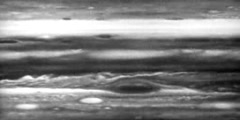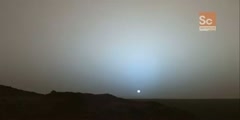Lec 4 - Discovering Exoplanets: Hot Jupiters
"Lec 4 - Discovering Exoplanets: Hot Jupiters" Frontiers/Controversies in Astrophysics (ASTR 160) The formation of planets is discussed with a special emphasis on the bodies in the Solar System. Planetary differences between the celestial bodies in the Inner and Outer Solar System are observed. Professor Bailyn explains how the outlook of our Solar System can predict what other star systems may look like. It is demonstrated how momentum equations are applied in astronomers' search for exoplanets. Planet velocities are discussed and compared in relation to a planet's mass. Finally, the Doppler shift is introduced and students learn how it is used to measure the velocity of distant objects, such as galaxies and planets. 00:00 - Chapter 1. Theory of Planetary Formation 12:04 - Chapter 2. Observing Moving Exoplanets and Stars 23:45 - Chapter 3. Doppler Shift 37:47 - Chapter 4. 51 Pegasus and "Hot Jupiters" Complete course materials are available at the Open Yale Courses website: http://open.yale.edu/courses This course was recorded in Spring 2007.
Video is embedded from external source so embedding is not available.
Video is embedded from external source so download is not available.
Channels: Astrophysics
Tags: 51 Pegasus coplanar orbit electromagnetic radiation Hot Jupiter inner planet Solar System terrestrial outer planetary formation planetesimal radial velocity scientific method analog motion theory wavelength
Uploaded by: yalefrontcont ( Send Message ) on 29-08-2012.
Duration: 46m 41s
Here is the next lecture for this course
Jupiter: the largest planet within the so ...
02:31 | 12354 viewsThe Largest Planet in Our Solar System
00:19 | 6403 viewsPlanetary Science: Exploring The Solar System
08:55 | 6947 viewsLec 3 - Our Solar System and the Pluto Pr ...
45:55 | 3354 viewsLec 7 - Direct Imaging of Exoplanets
47:05 | 2741 viewsChemical Science - Wavelike Properties of ...
46:09 | 14471 viewsThe Edge of the Solar System
02:31 | 4520 viewsThe Solar System
02:24 | 3043 viewsLec 5 - Planetary Transits
49:21 | 2281 viewsThe Biosphere Lecture MIT Prof. Penny Chi ...
45:39 | 13318 viewsThe Dark Matter Mystery: Most Of The Univ ...
00:00 | 9661 viewsLec 6 - Microlensing, Astrometry and Othe ...
47:27 | 2353 viewsThis Solar Collector Could Provide Power ...
02:13 | 2569 viewsMercury: the smallest planed in the solar ...
01:42 | 16380 viewsExploring The Solar System
07:40 | 6312 viewsNo content is added to this lecture.
This video is a part of a lecture series from of Yale















